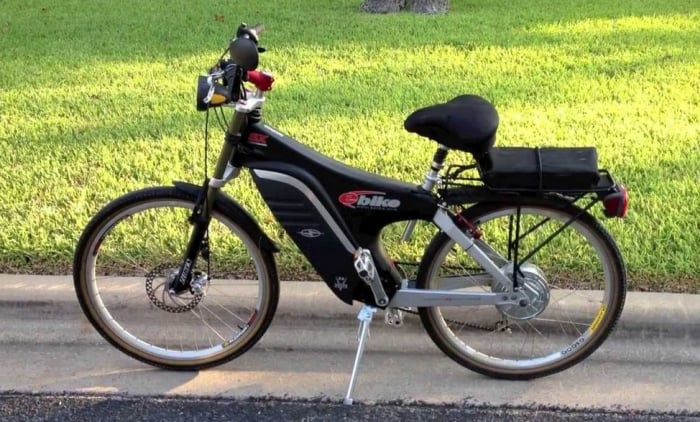You have /5 articles left.
Sign up for a free account or log in.

In 1997, the retired Chrysler CEO Lee Iacocca (1924-2019) founded a new company, EV Global Motors. Two years later, the company introduced the EVG e-bike.
Iacocca's e-bike never caught on. It was expensive, slow, heavy and had a short range. Five years after launching, Iacocca's company got out of the e-bike business.
What does the 1999 Iacocca e-bike have to do with higher education?
Today, e-bikes are poised to lead a renaissance in the bicycle industry. While traditional bike sales fell 8 percent last year, the number of e-bikes sold grew by 73 percent.
Iacocca was not wrong about the future of bikes. He was just early.
I believe that the future of at least one segment of higher education -- the nonelite master's degree -- will be scaled online programs.
Boston University's $24,000 online M.B.A., being developed in partnership with edX, has made a big impression on me.
So have the 20-plus low-cost online master's degrees from Coursera and edX that I counted a few months ago.
From what I can see, the expensive master's degrees from institutions with regional brands are now in their final act. High-cost master's from schools with globally recognized brands will continue, but perhaps only for the most well-known programs.
The market, as a whole, is going to shift toward low-cost online master's programs.
The speed of this shift will depend, in part, on the quality of the educational experience.
How well the platform companies (Coursera and edX), in collaboration with universities, will be able to leverage learning science, AI, peer interaction and just-in-time coaching to create rigorous and immersive educational experiences remains an open question.
In 20 years, I do not doubt that a low-cost online master's program will offer 80 percent of the quality of a traditional residential program, at 20 percent of the cost.
Between now and 20 years, I don't know what the rate of improvement will be. Will this 80/20 sweet spot be reached in three years? Five years? Ten years? Or the full 20? I don't know.
If that transition to a market where the standard price for a master's program is $25,000 is going to come soon, then it makes sense to me for every university to be investing in online learning at scale.
But I could be wrong.
The investors in Iacocca's electric bike company lost all their money. (I assume.)
Iacocca had the right idea at the wrong time. The technology wasn't ready for the vision.
How long do you think it will take for the market for master's degrees to shift?
Will low-cost online degrees at scale wipe out a wide swath of regional master's programs, as I suspect?
Or are these low-cost online programs like Iacocca's electric bike -- a good idea that is 20 years too early?




